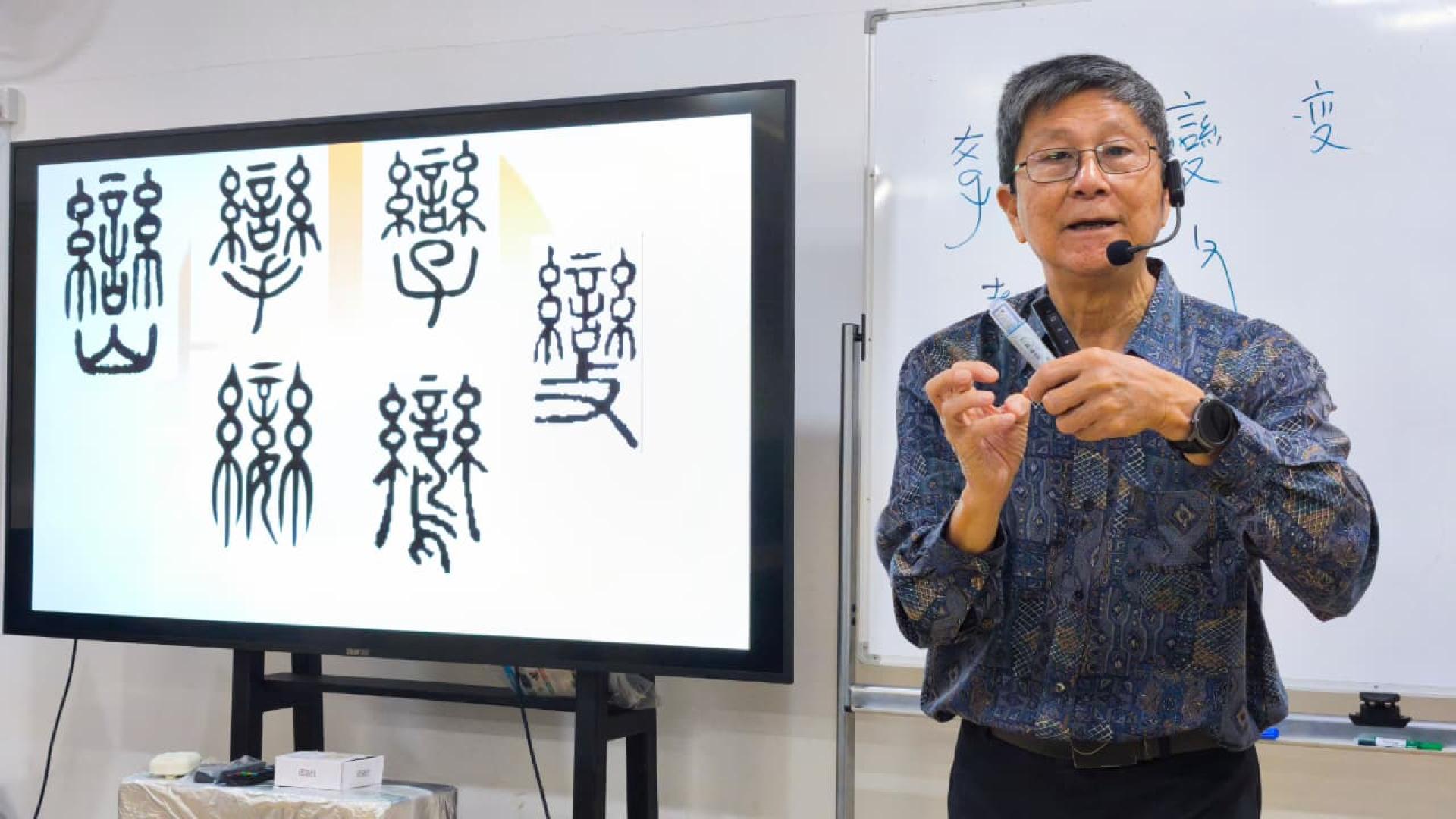(City News, 25th) The 17th session of the Jide Care Association’s “Cultural Academy” was recently held successfully, with Shen Renxiang as the keynote speaker. He led students on a journey through a thousand years, experiencing the profound charm of Chinese culture through both grand historical narratives and meticulous interpretation of Chinese characters.
Shen Renxiang began with the “Chenqiao Mutiny and the Donning of the Yellow Robe,” vividly recounting how Zhao Kuangyin consolidated imperial power through the strategy of “disbanding military power over a cup of wine,” thus laying the foundation of the Northern Song’s system of “strong central authority and weak regional power.” In his talk, he detailed the economic, scientific, and cultural prosperity of the Northern Song, while not shying away from its frequent external threats and the national humiliation of the Jingkang Incident.
The lecturer further touched on the historical helplessness of the Southern Song’s existence in a corner, as well as its resilient spirit while resisting the Jin and Mongol invasions, prompting attendees to reflect on the cycles of history and ways to manage order and chaos.
In the character exploration session, Shen Renxiang centered on the character “䜌,” analyzing its derivative characters—“恋, 栾, 挛, 鸾, 銮, 蛮, 变, 辩, 辨, 辫”—and their evolution in meaning and form, showcasing the structural beauty and logic of the Chinese written system.
He then guided students through the understanding of characters related to “宀” (the ‘roof’ radical), such as “家 (home), 宅 (residence), 寓 (dwelling), 密 (secret), 寡 (widow), 安 (peace), 宁 (tranquility), 富 (wealth), 向 (direction), 宰 (govern), 宿 (lodge), 寒 (cold), 闲 (leisure), 宗 (ancestor), 宫 (palace), 宝 (treasure)”—allowing reflection on the cultural implications of “living and working in peace and contentment” and “dwelling with propriety.”
In the final poetry appreciation segment, Shen Renxiang led the participants in reciting Wang Wei’s “Thinking of My Brothers in Shandong on the Ninth Day of the Ninth Month,” evoking homesickness. He then explored Lu You and Tang Wan’s “Phoenix Hairpin” to reveal the sorrows of life and the grief of nation and family, followed by a detailed appreciation of works by Li Qingzhao—tasting the joy, gentle melancholy, refined taste, solitude, and hardship in her poetry, thus experiencing the unique emotional world of female literati and the unyielding spirit within their “wine-soaked words.”
The entire course was profound and inspiring, allowing participants to once again experience the rich heritage and spiritual power of Chinese culture through listening and resonance.
The lecturer further touched on the historical helplessness of the Southern Song’s existence in a corner, as well as its resilient spirit while resisting the Jin and Mongol invasions, prompting attendees to reflect on the cycles of history and ways to manage order and chaos.
In the character exploration session, Shen Renxiang centered on the character “䜌,” analyzing its derivative characters—“恋, 栾, 挛, 鸾, 銮, 蛮, 变, 辩, 辨, 辫”—and their evolution in meaning and form, showcasing the structural beauty and logic of the Chinese written system.
He then guided students through the understanding of characters related to “宀” (the ‘roof’ radical), such as “家 (home), 宅 (residence), 寓 (dwelling), 密 (secret), 寡 (widow), 安 (peace), 宁 (tranquility), 富 (wealth), 向 (direction), 宰 (govern), 宿 (lodge), 寒 (cold), 闲 (leisure), 宗 (ancestor), 宫 (palace), 宝 (treasure)”—allowing reflection on the cultural implications of “living and working in peace and contentment” and “dwelling with propriety.”
In the final poetry appreciation segment, Shen Renxiang led the participants in reciting Wang Wei’s “Thinking of My Brothers in Shandong on the Ninth Day of the Ninth Month,” evoking homesickness. He then explored Lu You and Tang Wan’s “Phoenix Hairpin” to reveal the sorrows of life and the grief of nation and family, followed by a detailed appreciation of works by Li Qingzhao—tasting the joy, gentle melancholy, refined taste, solitude, and hardship in her poetry, thus experiencing the unique emotional world of female literati and the unyielding spirit within their “wine-soaked words.”
The entire course was profound and inspiring, allowing participants to once again experience the rich heritage and spiritual power of Chinese culture through listening and resonance.
